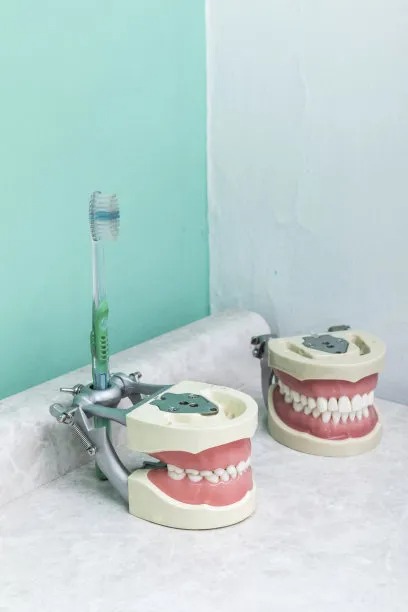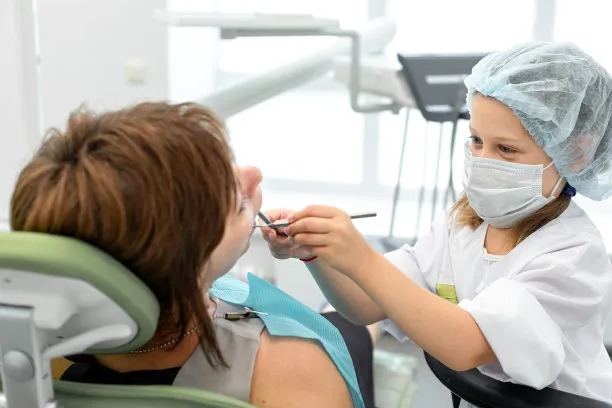Summary: Receiving a dental filling is a critical procedure to maintain oral health and restore the functionality of your teeth. Ensuring optimal recovery begins long before you sit in the dental chair and extends well into your post-treatment care. This article outlines essential precautions to take before and after receiving a dental filling, focusing on preparation steps, dietary considerations, oral hygiene practices, and follow-up appointments. Each aspect is crucial in ensuring a smooth recovery process while minimizing pain and preventing complications. By adhering to these guidelines, patients can enhance their recovery experience and safeguard their overall dental health.
1. Preparing For Your Dental Appointment

Proper preparation for your dental appointment is vital to ensure a successful filling procedure. First and foremost, communicate openly with your dentist about any concerns you may have regarding the procedure. Discuss your medical history, allergies, and any medications you are taking, as these can influence your treatment plan.
Next, arrange for transportation if needed. Following the appointment, you may feel numb due to local anesthesia, making it unsafe for you to drive. Have a friend or family member accompany you to help you navigate post-treatment tasks.
Additionally, consider scheduling your appointment during a time when you can take it easy afterward. Knowing you will have the opportunity to relax at home reduces anxiety about potential discomfort and ensures you can focus on recovery.
2. Dietary Considerations After Filling
Your diet plays a significant role in your recovery process after receiving a dental filling. Post-treatment, it is essential to wait until the numbness from anesthesia has fully worn off before eating or drinking. This will prevent accidental bites to your tongue or cheeks, which can lead to injury.
When you resume eating, opt for soft foods that are easy to chew and swallow. Foods like yogurt, mashed potatoes, and smoothies are excellent choices during the initial recovery period. Avoid hard and crunchy foods, as they may irritate your newly filled tooth.
You should also refrain from consuming hot beverages or foods immediately after the procedure. The sensitivity of your tooth during recovery can be exacerbated by extreme temperatures, which may lead to discomfort. Aim for lukewarm temperatures until your dentist gives you the all-clear to resume your regular diet.
3. Oral Hygiene Practices Post-Treatment
Maintaining good oral hygiene is crucial for the longevity of your dental filling as well as your overall oral health. It is generally advised to avoid brushing the filled tooth for the first 24 hours post-treatment. This waiting period allows the filling material to properly set without interference.
However, you can continue to brush and floss your other teeth as usual. After this initial period, be gentle when brushing the filled area, using a soft-bristled toothbrush to avoid causing damage or discomfort.
Additionally, consider using an antibacterial mouthwash to keep your mouth clean and reduce the risk of infection. This practice will help prevent plaque buildup around the filling, which is vital for sustaining oral health.
4. Importance of Follow-Up Appointments
Follow-up appointments play an essential role in the success of your dental filling. After the procedure, schedule a visit with your dentist to ensure that the filling has adhered correctly and there are no any underlying complications present. This check-up can help address any concerns you may have regarding sensitivity or discomfort.
It is also crucial to attend regular dental check-ups every six months to detect any issues early on. These appointments will allow your dentist to monitor the condition of your filling and provide necessary assessments to maintain your oral health.
Neglecting follow-up appointments can lead to complications, including decay around the filling or additional dental issues. Investing time in these check-ups ultimately saves you from more extensive treatments in the future.
Summary:
In conclusion, preparing for and recovering from a dental filling requires attention to detail and adherence to specific precautions. Effective preparation, thoughtful dietary choices, diligent oral hygiene, and routine follow-ups are essential for optimal recovery and health. By following these guidelines, patients can experience a smoother healing process and maintain their dental health.
This article is compiled by Vickong Dental and the content is for reference only.
Vickong Dental
Vickong Dental is a large medical group established in Hong Kong in 2008 by professors from well-known medical universities in Guangdong and Hong Kong, as well as medical doctors from key national '985' universities (including Master's supervisors and senior professors). The chain of branches brings together expert dentists with PhDs and Master's degrees from Hong Kong and Mainland China, committed to providing high-quality dental treatment.
"Vickong Dental Practices the University Motto of 'Healing and Serving Society,' with a Stable Operation for Sixteen Years. It Has Been honored with Hong Kong Enterprise Leaders's Choice,' and is a Global Trusted Implant Center for the Nobel Implant System. Recommended by Hong Kong Metro Broadcast and Guangdong Television, it Serves Customers from Over Thirty Countries and Regions, Gaining the Trust and Favor of Citizens from the Guangdong-Hong Kong-Macau Greater Bay Area and Surrounding Cities.

Thousands of customers' unanimous praise
The most recognized and highly recommended dental service by customers in the Guangdong-Hong Kong-Macau Greater Bay Area
We Ensure You Receive Detailed Care and Attention Here
Hong Kong standards, Shenzhen prices, Your Trusted English-speaking dentists

Vickong Dental Medical-Grade Instrument Disinfection Process
Vickong Dental Medical-Grade Instrument Disinfection Process

Vickong Dental Chain: A Warm and Comfortable Environment for Treatment






Appointment Hours

Q&A
Why choose Vickong Dental?
Vickong Dental practices the university motto 「Medicine to Benefit Society」, with each branch bringing together highly qualified dentists with doctoral and master’s degrees from Hong Kong and the Mainland, and has maintained seventeen years of steady operation。Recipient of 「2024 Hong Kong Enterprise Leaders Brand」, 「2025 Hong Kong Enterprise Leaders Brand」, a Nobel Biocare Global Trusted Implant Center, and a brand recommended by Metro Radio Hong Kong and Guangdong TV。
To date, we have served customers from more than thirty countries and regions,earning exceptionally high word-of-mouth recognition and trusted recommendations from residents across the Guangdong-Hong Kong-Macao Greater Bay Area and surrounding cities
We have eight major branches in Zhuhai、Shenzhen,and a consultation and service assurance center in Hong Kong,so you can book a free consultation at any time for any questions,which is very reassuring.
If I do not accept the quotation after the CT scan, will I be charged??
No! As long as the actual treatment has not started, you will not be charged any fees.
Will there be any additional charges during the treatment process?
No, there won’t be any additional charges. Before treatment begins, we will clearly explain the treatment plan and its corresponding fees. Only after the patient agrees and signs the consent form will we proceed with the dental service.
Can I pay in Hong Kong dollars?
Yes. Vickong Dental accepts payment in Hong Kong dollars. The amount will be converted based on the exchange rate of the day, and the applicable rate will be clearly communicated to you in advance.
Can I reschedule my appointment at any time?
Yes. Please contact us via **WeChat** or **WhatsApp** as early as possible, providing your original appointment time and details, along with your preferred new date and time slot for rescheduling.













